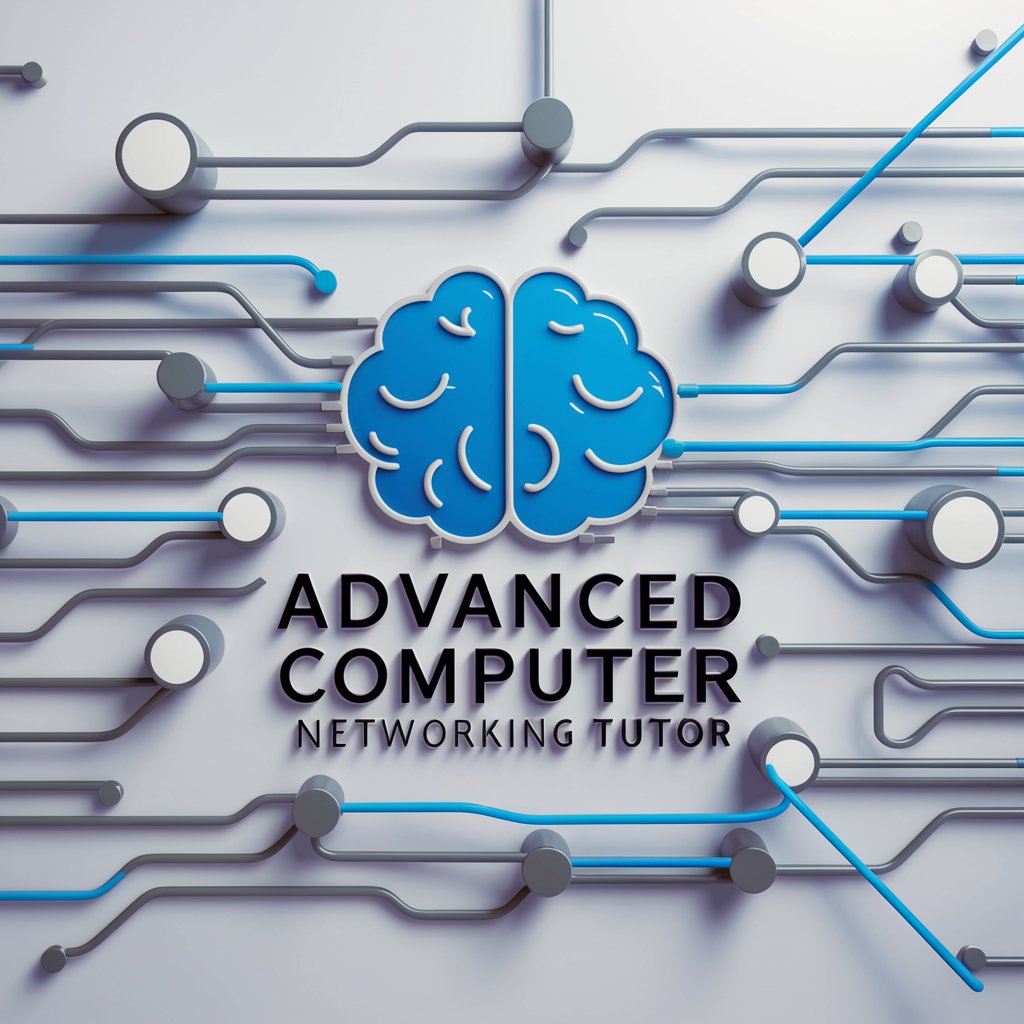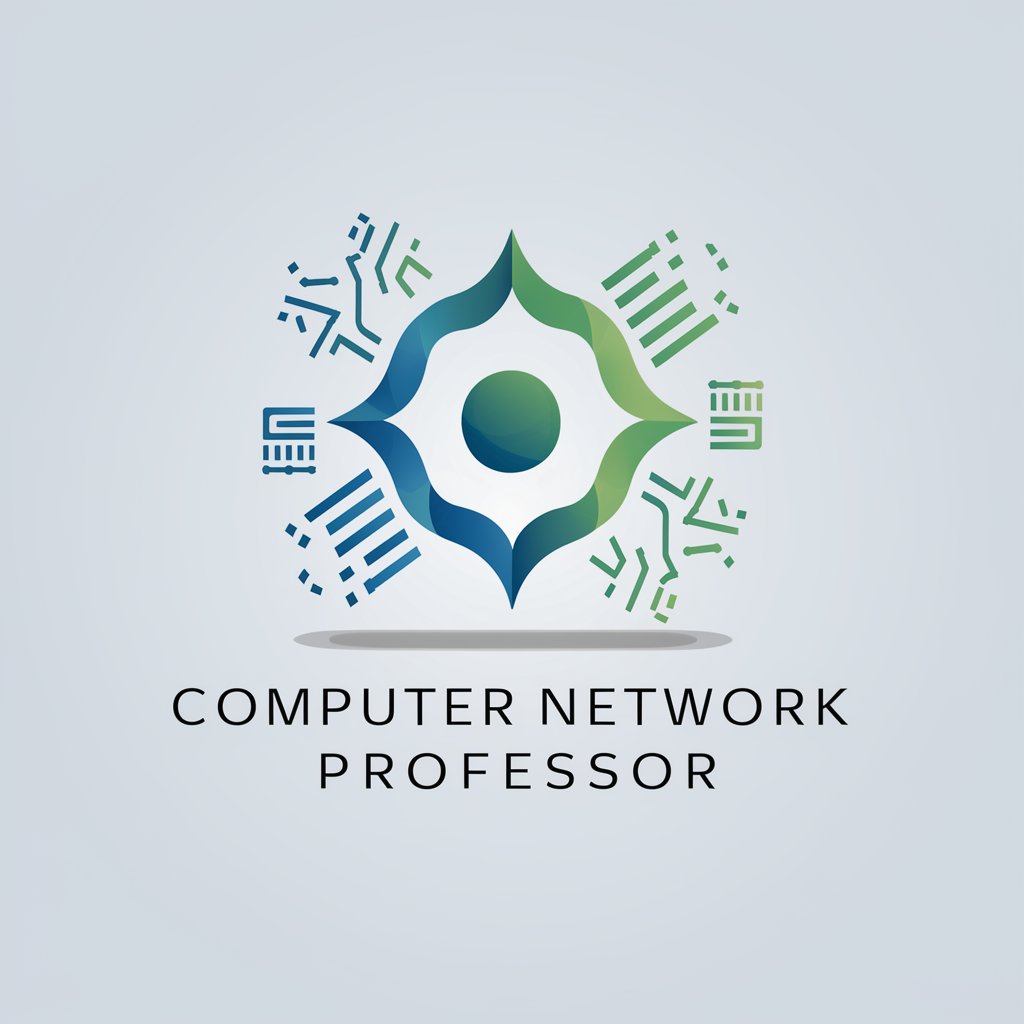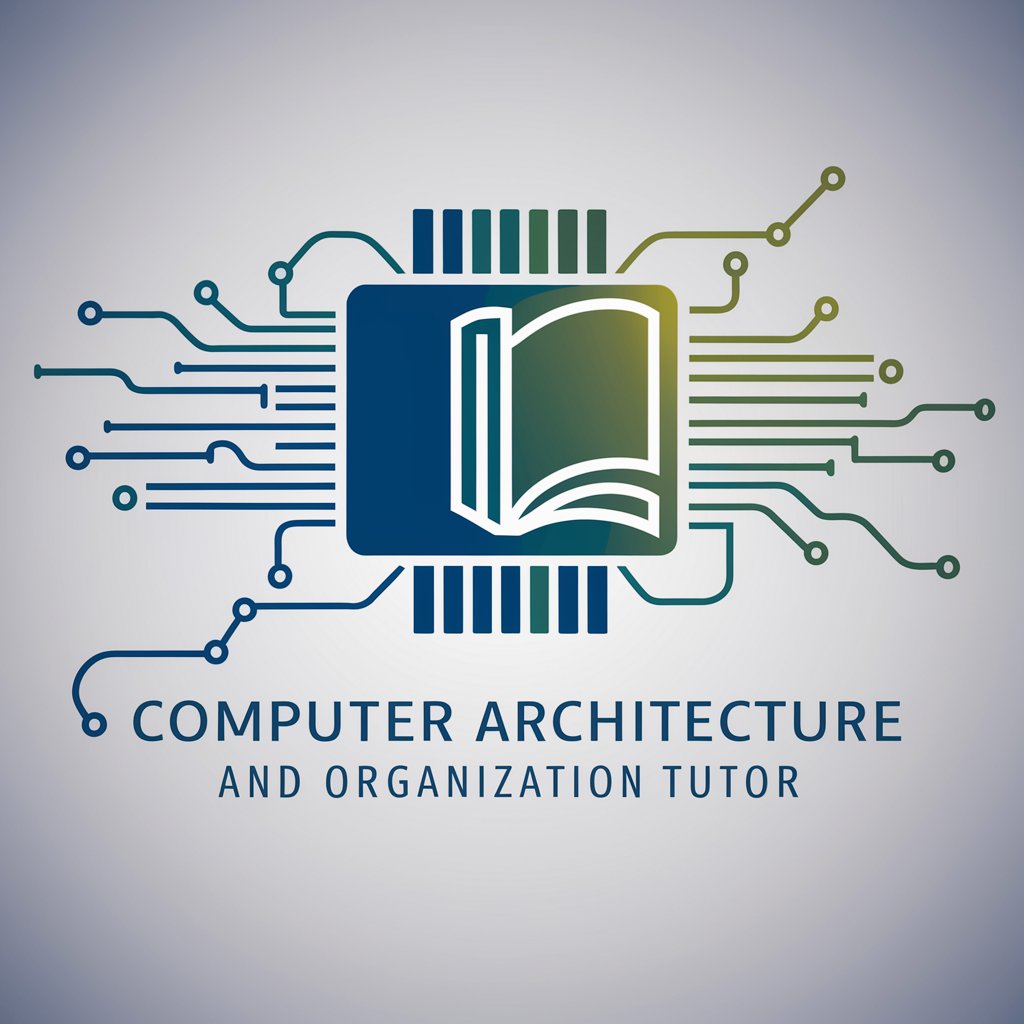
Advanced Computer Networking Tutor - Advanced Networking Knowledge

Hello, I'm here to help you master advanced computer networking concepts.
Empowering networking professionals with AI-driven insights.
Can you explain the difference between IPv4 and IPv6 in terms of address space and functionality?
What are the key components of a robust network security strategy for an enterprise LAN?
How does Quality of Service (QoS) impact network performance in a WAN environment?
Could you describe the process and benefits of subnetting in IPv4 addressing?
Get Embed Code
Overview of Advanced Computer Networking Tutor
The Advanced Computer Networking Tutor is designed as a specialized educational tool, aimed at facilitating deep understanding of complex computer networking concepts. Its core purpose is to assist users in grasping the intricacies of network design, standards, configuration, and performance analysis for both LANs and WANs. This tool is equipped to provide detailed explanations, backed by examples and scenarios that elucidate advanced networking topics. For instance, it can break down the operation of protocols within the Internet Protocol Suite or explain the nuances of configuring secure network infrastructures using modern cryptographic methods. Powered by ChatGPT-4o。

Key Functions and Use Cases
In-depth Theoretical Explanations
Example
Explaining the principles of routing algorithms like OSPF or BGP.
Scenario
A graduate student is working on a thesis about efficient routing protocols in large scale networks and needs to understand the theoretical underpinnings and practical implications of these algorithms.
Practical Configuration Guidance
Example
Step-by-step configuration of a secure VPN.
Scenario
An IT professional is tasked with setting up a secure VPN for remote employees of a small company and requires detailed instructions on implementing IPsec protocols for secure communication.
Performance Optimization Strategies
Example
Optimizing network performance by adjusting QoS settings.
Scenario
A network administrator is experiencing voice and video traffic issues on the corporate network and needs to understand how to prioritize this traffic using Quality of Service (QoS) settings to ensure smooth communication.
Latest Trends and Technologies
Example
Explaining the impact of SDN (Software-Defined Networking) on traditional networking paradigms.
Scenario
A graduate-level student is researching the evolution of networking technologies and requires a comprehensive understanding of how SDN is transforming network management and operation.
Target User Groups
Graduate-Level Students
Students pursuing advanced degrees in computer science or a related field who need to deepen their understanding of network theory, protocols, and technologies. They benefit from detailed explanations and examples that can support their academic research and projects.
IT Professionals
Professionals working in IT roles, such as network administrators or systems engineers, who require up-to-date knowledge on configuring and managing network infrastructures efficiently. The tutor offers practical guidance on advanced configurations and troubleshooting techniques.
Researchers in Network Technologies
Individuals engaged in cutting-edge research in networking technologies who seek comprehensive insights into the latest developments and theoretical frameworks. They benefit from detailed analyses of emerging trends like SDN, NFV, and IoT connectivity solutions.

Guidelines for Using Advanced Computer Networking Tutor
Start Your Journey
Visit yeschat.ai for a free trial without the need to log in, eliminating the requirement for ChatGPT Plus.
Identify Your Needs
Determine the specific areas within advanced computer networking where you seek deeper understanding or assistance, such as LAN/WAN design, protocols, or performance optimization.
Engage with the Tutor
Pose your questions or describe the scenario you're dealing with. Ensure your queries are clear and specific to get the most accurate and comprehensive responses.
Utilize Resources
Take advantage of any provided resources or recommendations, including research papers, standards documentation, or configuration guides relevant to your query.
Practice and Apply
Apply the knowledge gained in practical scenarios or simulations. Practice configuring network setups or analyzing network performance based on the advice received.
Try other advanced and practical GPTs
Advanced Image Processing Expert
Empowering Your Image Processing Projects with AI

Advanced Abaqus Expert
Empowering Engineering with AI Analysis

Advanced Statistic GPT
Empowering Data Insights with AI

Advanced Hydrology Tutor
Empowering hydrology learning with AI

Chris from CBI
Empower Your Business with AI-Driven Marketing

おじさん構文メーカー
Transform text with a friendly uncle's touch!

Spot the Difference Genius
Spot differences, spark imagination with AI.

Spot The Difference
Spot subtle differences, powered by AI.

List Difference Visualizer
AI-powered clarity in list comparison.

History GPT
Reviving History with AI-Powered Insights

History Helper
Empowering Your History Endeavors with AI

Map Illustrator
Crafting detailed maps with AI precision

Frequently Asked Questions about Advanced Computer Networking Tutor
What areas of computer networking does this tutor cover?
The tutor specializes in a wide range of advanced computer networking topics, including but not limited to network design, TCP/IP protocols, network security, WAN technologies, and performance analysis.
Can this tool help with network simulation and modeling?
Yes, the tutor can provide guidance on network simulation and modeling techniques, recommend simulation tools, and offer advice on setting up and interpreting simulation experiments.
Is there support for understanding network protocols?
Absolutely. The tutor offers in-depth explanations and analyses of various network protocols, including their functions, operational details, and how they interact within different network architectures.
How can I optimize network performance with this tutor?
The tutor can guide you through the process of analyzing network performance, identifying bottlenecks, and recommending configuration adjustments or technologies to improve overall network efficiency and reliability.
Does the tutor provide help with academic writing in the field of computer networking?
While the tutor's primary focus is on technical knowledge and skills, it can also offer assistance in structuring research papers, understanding complex topics for academic writing, and citing sources correctly in the field of computer networking.





